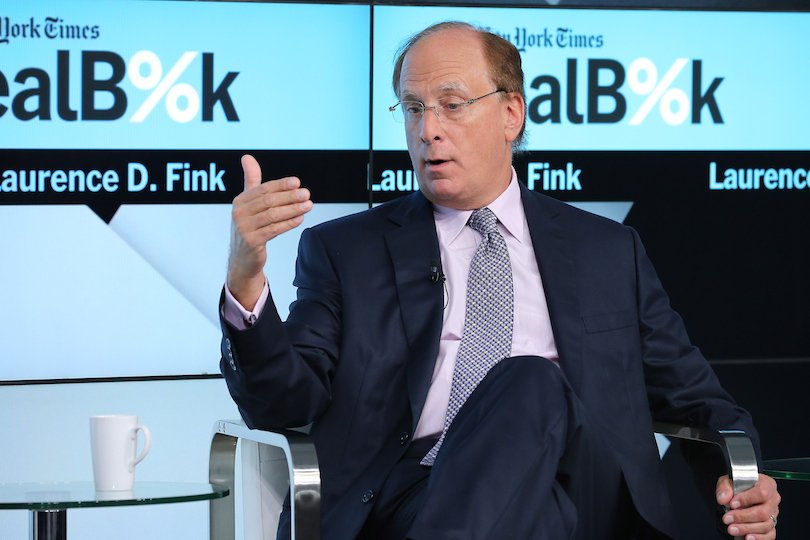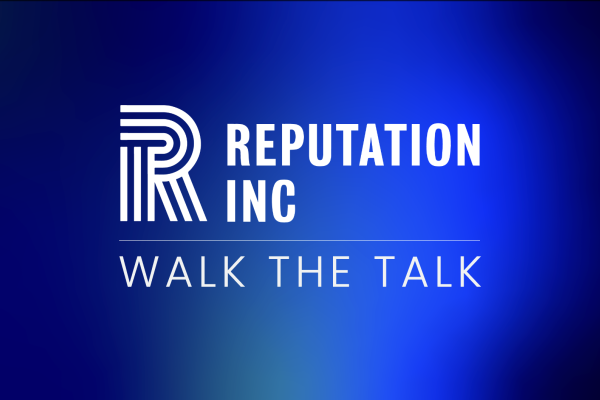
From shareholder primacy to stakeholder focus
It was during my masters degree in business administration when I was introduced to and inspired by the thinking of Peter Drucker, particularly his philosophy behind “Marketing is Management: To satisfy the customer is the mission and purpose of every business.” In his view, a relentless focus on the customer is the core responsibility of the entire business, rather than of just a single function (i.e. marketing).
Fast forward several years, and my focus evolved from customer-specific to a multi-stakeholder orientation, and from marketing to managing corporate reputations. I recognised that long-term, sustainable profitability required the support of not just shareholders, or solely customers, but of all stakeholders that can help or hinder strategy delivery.

To paraphrase Peter Drucker: To satisfy the customer and other key stakeholders should be the mission and purpose of every business.
However, it has been discouraging at times to see so many boardrooms still sacrificing long-term value creation in favour of maximising short-term shareholder value, pushing customer and other stakeholder interests and relations into siloes further down the line. It’s therefore exciting to see the tide finally turning.
The evolving boardroom perspective
More recently, we see and hear corporate leaders rethinking the role of business in society, encouraging organisations to pay more attention to wider stakeholder interests.
More than a year ago, Larry Fink, CEO of BlackRock, the world’s largest investment firm, started to assert the need for businesses to have a social purpose to achieve sustainable long-term growth and profitability.
Last month, The Business Roundtable (BRT), a formerly shareholder-first association of leading US chief executives (including the CEOs of Amazon, JP Morgan and General Motors), got a lot of attention when it launched its revised purpose statement, placing shareholders as one of five stakeholders, equal to customers, employees, suppliers and communities.
And from 2020 onwards, the changes of section 172 of the Companies Act 2006 oblige Boards of Directors of larger companies operating in the UK to demonstrate that they have consulted and understood the views of their organisation's wider stakeholders – and have taken those interests into account in their decision-making.
The proof is in the pudding
These recent developments must be music to the ears of anyone who is making the case for a more stakeholder-value based approach to business. But statements of purpose are not the same as actions. Often, legal requirements have ended up as mere tick box exercises, rather than driving real changes in corporate attitudes and actions.
I don’t want to create the illusion that it’s easy to address the conflicting interests of various stakeholders. None of the above statements tell us, for example, how companies should deal with the inevitable trade-offs between their expectations.

That’s why some organisations will wait until they are pressured to act or will seek advice on how they can do the bare minimum in complying with the new requirements and expectations.
Yet, many organisations have started to embrace the challenge with enthusiasm. They are seizing the opportunity of taking wider stakeholder interests into consideration to strengthen their reputation and create competitive advantage at the intersection of business and society.
How can others follow suit? Applying some of Peter Drucker’s timeless wisdom, here are a range of things that leaders can consider doing to create stakeholder value for long-term business growth:
- “Management by objective works if you first think through your objectives. Ninety percent of the time you haven’t” [1]: Start with your business goals. Which stakeholders will play a role in delivering your strategy and which key decisions might affect them?
- “The most important thing in communication is to hear what isn’t being said”: Identify and understand your wider stakeholder interests and expectations – and learn to ask the right questions
- “If you want something new, you have to stop doing something old”: As the strategic demands of leaders evolve, so too do their required skills. Equip leaders with the right capabilities to oversee corporate reputation and to effectively engage with wider stakeholders
- “Culture eats strategy for breakfast”: Nurture a culture that embodies your reputation ambition. What do you want to be known for and how do you want to be seen?
- “Unless commitment is made, there are only promises and hopes, but no plan”: Establish consistent processes and incentives to ensure that conflicts between stakeholder interests are considered and addressed in a balanced way when decisions are made
- “If you can’t measure it, you can’t manage it”: Develop effective KPIs and insights to track and evaluate the impact of your decisions on your stakeholders and wider society, and course-correct if required

Decision-making requires courage
The new UK governance reforms, and latest statements of influential business groups and individuals, are strong indicators of executives’ willingness to consider and address the interests of various stakeholders for long-term business success. But ensuring that this is more than mere window-dressing will take skill.
The new UK governance reforms, and latest statements of influential business groups and individuals, are strong indicators of executives’ willingness to consider and address the interests of various stakeholders for long-term business success. But ensuring that this is more than mere window-dressing will take skill.
In your own role, how do you support the leaders of your organisation to fulfil this critical duty and guide your company to take a more holistic view of their impact on business and society? Where do you see the biggest challenges, shortcomings and dilemmas? And what do you think are the most important enablers for business leaders who want to include wider stakeholder interests in their decision-making?
Please do feel free to get in touch at kliehr@reputation-inc.com. I’d love to hear from you.
[1] Text in italics are quotes from Peter Drucker.



